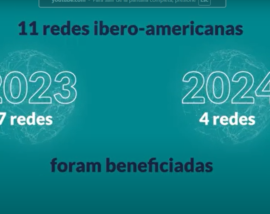The Dominican Republic is one of the fastest growing economies in Latin America and the Caribbean, yet one in three Dominicans remains poor SANTO DOMINGO, December 13, 2016 – President Danilo Medina and World Bank Vice President for Latin America and the Caribbean Jorge Familiar today launched a series of policy notes offering priority options to keep the country on a path of sustainable and inclusive growth in the context of global economic downturn. “Fighting poverty relentlessly is one of our government’s key goal for 2016-2020. The policy options presented today by our important partner, the World Bank, will be an important input into our efforts to halve extreme poverty in the Dominican Republic as set out in the Comprehensive Plan for Overcoming Extreme Poverty,” said Danilo Medina, President of the Dominican Republic.The Dominican Republic has enjoyed one of the strongest growth rates in Latin America and the Caribbean over the past 25 years. In the last two years, the share of Dominicans living in poverty (about 152 Dominican pesos a day) has also substantially declined from 36.4 percent in 2014 to 32.3 percent in 2015. Yet, social spending in the DR remains low compared to the rest of the region; on average 1.6 percent of GDP in health compared to regional average of 4.5 percent. In addition, deficiencies in the reliability and quality of water and electricity services are affecting key drivers of growth including tourism, agriculture, and manufacturing. “The Dominican Republic is one of the fastest growing economies in Latin America and the Caribbean and is well placed to build on its successes to make progress on inclusive growth,” said World Bank Vice President Jorge Familiar. “We hope that the policy notes presented today contribute to this endeavor by focusing on the need of boosting competitiveness, improving public services, as well as climate resilience in the country.” The series of policy notes “Building a Better Future Together” highlights three priorities to bring greater and sustained prosperity to all citizens:Greater productive inclusion, through a labor market with better human capital and greater participation of women, links between foreign investment and the local economy, and increased competitiveness. Despite recent progress in the ease of doing business, the Dominican Republic can still improve access to financing for small businesses. The report proposes to improve the links between companies located inside and outside the special economic zones, and the generation of the necessary core competencies in the labor market.Public expenditure that is sufficient and effective in the context of limited fiscal space. Dominicans have experienced substantial progress in school enrollment and health insurance coverage, however, students continue to perform poorly compared to other Latin American countries, and under-five mortality rates in children remain high (31 per 1,000 people from 2015). To address this, the country needs continuous efforts to expand educational services, professional incentives, and more efficient and integrated social services to help ensure coverage of the most vulnerable. In addition, quality coverage at low price in water supply and sanitation, as well as electricity and information and communication technologies (ICTs) must also be ensured.Increased resilience to climate change and natural disasters, and improved natural resource management to sustain high levels of growth. The Dominican Republic is highly exposed to extreme weather events and the impact of climate change. The inclusion of climate risks in fiscal risk management strategies, promotion of climate smart agriculture and ecosystem services, will be key to helping the country to be better prepared for climate change and natural disasters. Learn more about the work of the World Bank in Latin America and the Caribbean: www.worldbank.org/lac Visit us on Facebook: http://www.facebook.com/worldbank Be updated via: Twitter: @WBCaribbean YouTube: http://www.youtube.com/worldbank
World Bank Highlights DR’s High Performance and the Need for Better Services for All
-
10 pasos para unas fiestas felices y ecológicas
Es importante que estas fiestas constituyan un tiempo de reflexión sobre nuestros hábitos, y no solo los de consumo. Este es un momento para pensar en el bienestar de otras personas, incluso de aquellas que no conocemos.
-
Costa Rica, el primer país en el mundo en proteger la pesca sostenible de grandes pelágicos
El sector pesquero del país está compuesto por alrededor de 400 embarcaciones, cada una de las cuales transporta entre cinco y ocho personas, formando una población activa de aproximadamente 2.000 a 3.200 personas vinculadas directamente al sector.
-
Reparación: Reconociendo las vidas resilientes de las personas trans en Latinoamérica
En el contexto latinoamericano, países como Argentina, Brasil, El Salvador y Uruguay han establecido mecanismos legales para facilitar el acceso a dichos procesos de restitución.


